In today’s environmentally-conscious world, more and more gardeners are turning to natural organic fertilizers to nurture their plants. This blog explores the benefits of using organic fertilizers, which offer a sustainable and eco-friendly alternative to chemical-based products. By improving soil health and promoting robust plant growth, these natural options not only enhance the vitality of your garden but also contribute to a healthier ecosystem. Throughout this article, we’ll delve into various types of organic fertilizers, their advantages, and practical tips for incorporating them into your gardening routine. Whether you’re a seasoned gardener or just starting out, this guide aims to provide you with valuable insights to optimize your garden with the power of nature.
What is an Organic Fertilizer?
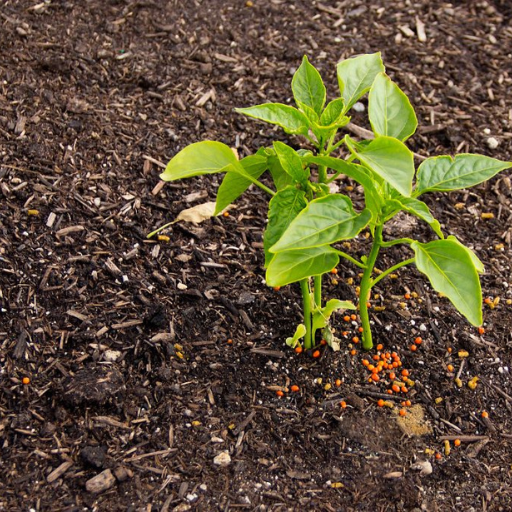
Understanding Various Forms of Organic Fertilizer
The natural manures come in different varieties each with its own unique uses and benefits to the garden. Here are some common types:
- Compost: This is decomposed organic matter like kitchen waste and yard vegetation which is rich in nutrients and useful microorganisms. It improves soil structure, water holding capacity as well as acts as a slow release for other nutrients.
- Manure: Animal feces mostly from cows, chickens or horses, is a good source of nutrient and organic matter. It enriches the soil improving its fertility although it should be well-composted to avoid pathogens and high level of nitrogen.
- Bone Meal: Made out of ground bones of animals, this fertilizer has high phosphorus content that is essential for root development and flowering. It is particularly good for root vegetables and flowering plants.
- Blood Meal: A highly concentrated nitrogen fertilizer made from dried animal blood. Blood meal promotes rapid vegetative growth in plants and greening. It’s ideal for leafy green vegetables, lawns, trees as well as any other nitrogen loving plant species.
- Fish Emulsion: This liquid fertilizer derived from fish waste contains essential elements such as nitrogen (N), phosphorus (P) and trace minerals/elements. It works quickly making it very helpful especially when used on seedlings or transplants.
- Green Manures/Cover Crops: These include plants such as clover or rye grass which are purposely grown to be incorporated into the soil to increase organic matter content hence nutrient content of the soil. They also minimize erosion while enhancing the way your soil is structured.
- Seaweed Extracts: Seaweeds are marine plants whose extracts contain lots of trace elements plus hormones promoting growth in various plants. They help enhance plant immunity against stress.
Understanding these different types of organic fertilizers enables one to customize their gardening approach according to their specific needs resulting in a productive farming environment free from artificial pesticides.
Benefits of Switching to Organic Fertilizers
Switching to organic fertilizers has numerous advantages that range from environmental to health benefits. First and foremost, they have an effect on soil health by providing necessary nutrients for the beneficial microorganisms to grow. This leads to improvement in soil structure and water retention as it reduces the need for frequent irrigation. Second, organic fertilizers are less likely to be washed away thus causing nutrient runoff which can lead to pollution of freshwater bodies and damage marine life within such ecosystems. They are therefore more eco-friendly as compared to synthetic fertilizers in this regard .Additionally, use of organic fertilizers may improve plant health parameters including yields due to the provision of balanced nutrition and enhancement of soil ecosystem. Lastly, organic fertilizers may pose no harm towards human beings or pets since they often lack certain dangerous chemicals known for causing diseases when used by these people. This way natural gardeners create healthier living conditions nearby.
How To Choose The Best Organic Fertilizer For Your Garden
There are several factors that should guide you when choosing the best organic fertilizer for your garden:
- Soil test results: It is important that you first conduct a soil test so as to know what your soil needs in terms of nutrients deficiency levels and pH levels.
- Type Of Plants: Different plants require different types of nutrients; some will need high content of phosphorus like fruits while others like leafy greens would require higher nitrogen supply.
- Nutrient content: Look out for a good balance ratio between these three main elements namely Nitrogen (N), Phosphorus (P) and Potassium (K) which guarantees overall plant wellness since such fertilizers also contain calcium, magnesium, sulfur etc., as trace minerals.
- Release Rate : You can choose between fast release or slow release kinds depending on your gardening objectives with fast release ones providing immediate nutrition whereas slow release giving extended feeding periods
- Ingredients: Verify whether ingredients are organic and synthetic chemical free. A few of the usual constitutive elements of organics are manure, composts, bone meal and kelp.
- Application Method: Decide between liquid, granular or powder fertilizers depending on how easy they are to apply and the specific requirements of your garden.
Through considering these factors while making a decision will help you in choosing the best organic fertilizer that promotes productive plant growth as well as flourishing garden ecosystem.
How to Improve Your Garden Soil with Organic Fertilizers?
Maximizing Nutrient Absorption with Organic Fertilizers
To maximize nutrient absorption through organic fertilizers, there are several key practices that should be followed:
- Soil Preparation: Begin by adequately preparing the soil. This will allow for improved aeration and drainage which in turn enhance roots’ ability to take in nutrients.
- Proper Timing: Apply fertilizers at appropriate times, usually during the growing season when plants can effectively absorb them. The application should be done either early morning or late evening to minimize nutrient loss from evaporation.
- Correct Dosage: Adhere to the recommended rates of application so as not to over-fertilize, which could be detrimental to plants and soil health. Proper balancing will ensure optimum uptake of nutrients.
- Incorporation of Organic Matter: Use compost or well-rotted manure as organic matter. These materials also improve the structure of soil, increase microbial activity thereby making it easier for plants to access nutrients.
- Mulching: Employ straw or wood chips made from organic materials so that they can retain moisture on the ground and regulate temperatures in it. Also, it decomposes thus adding organic matter into the soil.
- pH Balance: Keep your soil pH within balance because extreme pH levels may lock up or make nutrients unavailable for uptake by plants; adjust your soils pH as required ensuring you keep it within optimal range for your crops.
If you follow these practices, you can get more nutrients out of whatever food/nutrient you put in your mouth (and grow a beautiful garden).
Role of Soil Microbes in Improving Its Quality
The role played by microorganisms in improving soil quality involves breaking down organic material, cycling nutrients and stimulating plant growth. Decomposers (beneficial bacteria and fungi) convert complex forms of organic matter into simple compounds necessary for plant nutrition such as nitrogen (N), phosphorus (P), potassium(K). In this way, decomposition not only enriches but also improves soil texture, enhancing aeration and water holding capacity. Some of these microbes live around plant roots (e.g., mycorrhizal fungi) which in turn increase the nutrient and water supply to plants by enlarging their root systems. By cultivating diverse and active populations of these organisms, gardeners can create fertile soil that promotes healthy growth and recovery from stress by greenery.
Advantages of Adding Organic Matter into your Soil
There are various benefits that you will enjoy when you add organic matter to your soil, all contributing to better gardening practices. Firstly, it enhances the soil structure by forming aggregates among its particles thus improving on aeration, drainage and root growth. Secondly, it considerably increases the amount of water that can be retained in the soil hence reducing frequent watering as well as enabling plants to withstand dry conditions. Thirdly, organic matter acts as a slow-release fertilizer decomposing gradually over time to release important nutrients like nitrogen phosphorus and potassium. Besides this, organic matter supports beneficial microbial activity while creating habitat for earthworms; both activities contribute to improving soil fertility and structure respectively. Consequently, adding more humus makes gardening much more sustainable or rarely affected especially during adverse weather seasons.
What Organic Fertilizers Work Best for Specific Plants?
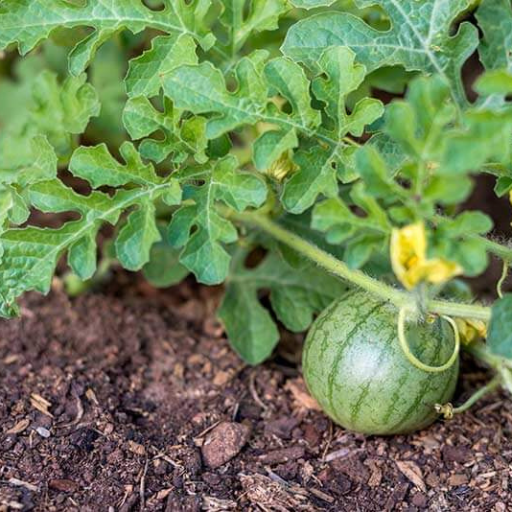
Top Organic Fertilizers for Flower Gardens
Choosing the right organic fertilizers for your flower garden can greatly improve plant health and bloom quality. These are some of the best options:
- Composted Manure: Composted manure from cows, horses or chickens that has been aged well is a wonderful organic fertilizer for flower gardens. It supplies nutrients in an even way, improves soil texture, and stimulates microbe work.
- Fish Emulsion: Fish emulsion is a liquid fertilizer made from fish waste rich in nitrogen, phosphorus, and potassium. It serves as an excellent supplement to flowering plants with its quick nutrient release for overall healthy development.
- Bone Meal:Being high in phosphorus bone meal is highly effective for root growth and flower production; it also contains calcium which strengthens cell walls of plants resulting into strong plant growth.
By adding these organic fertilizers to your flower garden you are assured of better plant health, brighter flowers and sustainable gardening.
Best Fertilizers For Vegetable Gardens
It is important to choose the most effective organic fertilizers when doing organic vegetable gardening so as to have healthy productive plants. Here are some top picks based on what experts recommend:
- Compost: Compost is packed with vital nutrients as well as beneficial microbes that promote soil structure, water retention and ensure steady supply of nutrients required by the crops over long periods of time. They are suitable for all types of vegetables ranging from leafy greens to root crops.
- Worm Castings: Worm castings contain numerous essential nutrients as well as helpful microorganisms that help plants grow well. They make soil permeable hence draining easily and having good texture hence very good materials for vegetable gardens.
- Seaweed Extract: Seaweed extract abounds in micronutrients, vitamins and hormones involved in growth process. It helps plants thrives more actively , stimulates rooting system formation and makes them stress tolerant i.e. withstand drought conditions/disease attack s . It can be used for all types of vegetable.
By using these organic fertilizers in your vegetable garden there will be stronger plant growth, high yields and sustainable gardening methods.
Best Organic Fertilizers for Fruit Trees
To grow well and yield abundant fruits fruit trees need specific nutrients. These are some ideal organic fertilizers according to the best gardening websites:
- Composted Manure: Composted manure is ideal as nutrient source for fruit trees. It supplies balanced nourishment involving nitrogen, phosphorous and potassium which are essential in fruit production and tree well-being in general. Additionally it improves texture of soil and multiplication of microbes, thus leading to greater absorption of food by roots.
- Bone Meal: Slow-release bone meal has a high concentration of phosphorus that is important for strong root development and flowering. On top of that bone meal provides calcium which ensures cell wall formation hence disease resistance. Applying bone meal at planting or during the growing season helps improve the quality and number of fruits.
- Fish Emulsion: Fish emulsion is an excellent organic fertilizer with abundant nutrient contents which are beneficial to fruit trees. It provides nitrogen, phosphorus, potassium that can be absorbed quickly by plants. Fish emulsion makes plants grow fast, strengthens their rooting system as well as enhances their resistance against pest infestations and diseases.
When you use these organic fertilizers on your fruit trees regularly they will remain strong; thus yielding good quality fruits.
How to Properly Apply Organic Fertilizers?
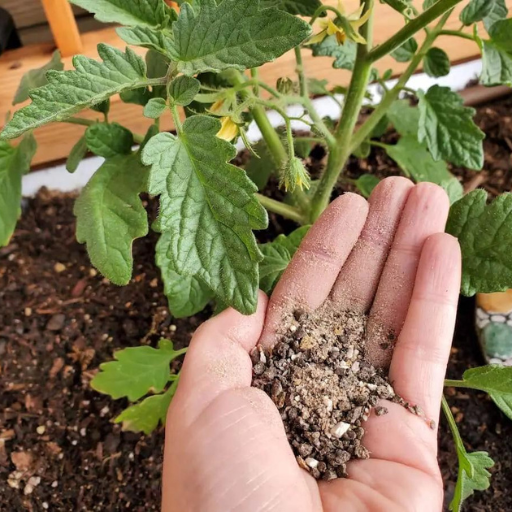
Organic Fertilizers Application – A Step-by-Step Guide
- Test Your Soil: You are required to undertake soil test before applying any fertilizers for you to understand its nutrient composition and pH levels. This will help you determine the type and amount of fertilizer needed for optimal tree health. For example, you can get soil testing kits at garden centers or send a sample to your local extension service for analysis.
- Choose the Right Time: The best times to fertilize fruit trees are in early spring just before growth begins and late fall after harvesting. Late summer should be avoided because there could be new growth that might not harden before winter.
- Measure the Fertilizer: Based on your soil test recommendations, measure out the appropriate quantity of chosen organic fertilizer. Over-fertilizing is not good since it causes harm to the tree leading to nutrient imbalances.
- Apply Around the Drip Line: Spread fertilizer around the drip line of a tree which is defined as an area on ground under outermost branches. This ensures that nutrients reach the tree’s feeder roots. To prevent damage, do not place fertilizer directly against trunk.
- Gently Work into the Soil: Lightly incorporate this organic material into top few inches of soil using a rake or hoe. Nutrients penetrate into soil faster so that they become available more quickly to a root system within a tree. Do not hurt his sensitive organ while doing this.
- Water Thoroughly: Once applied and mixed with soil, water area thoroughly. It activates nutrients making them be absorbed by roots of trees easily. In addition, regular watering during dry periods also ensures that the fertilizer continues benefiting your trees at all times.
- Mulch to Retain Moisture : Put layer of organic mulch (wood chips/ straw) on base/tree surrounding it up till drip line.Mulching helps retain moisture in soils , regulates temperature , decomposes and enhances further structure of these soils .
Following these steps will effectively integrate organic fertilizers into your fruit tree care routine, promoting robust growth and high-quality fruit production.
Common Mistakes to Avoid
- Over-Fertilizing: Applying too much fertilizer can cause nutrient imbalances and even damage the tree. Always follow the recommended guidelines for the type and amount of fertilizer that should be used.
- Incorrect Timing: Fertilizing at wrong times of a year might be ineffective or harmful. Best time to fertilize fruit trees is during early spring while their new growth begins before late in the season when they are most prone to winter damage.
- Improper Distribution: Failing to spread the fertilizer evenly around the drip line can result in uneven nutrient absorption. This is crucial for balanced growth
- Ignoring Soil Conditions: Not testing soil prior to application of fertilizers may lead inefficient or unnecessary fertilization. Confirm nutrient requirements through carrying out a soil test so as to adjust your fertilizer plan accordingly.
- Neglecting Watering: If you do not water the fertilizer into ground, then nutrients will never reach roots ensuring proper growth of plants. Thus, ample watering needs to be done after addition of such substances into land; this helps in their uptake by plant roots.
When and How Much to Use?
The frequency of applying fertilizer and the amount to apply depend on the special needs of your fruit trees, type of soil, climate. As a rule, most fruit trees should be fertilized once a year ideally early in spring before new growth starts. Some others may require an additional application in late spring or early summer.
On quantity, it is crucial that we comply with the manufacturer’s instructions which usually give recommendations based on the age and size of trees involved. For instance, it is not uncommon for people to recommend one pound per year of age with a maximum ten pounds per application for mature trees. However, these suggestions vary quite widely hence requiring you to match the amount of fertilizer with your particular fruit tree as well as soil conditions often done using a test for soil condition.
Through following these general rules while adjusting them according to your specific case ensures that your fruit bearing trees receive suitable nourishment for proper growth plus abundant fruiting.
Can Organic Gardening be Achieved without Permission to Access or Using Synthetic Inputs?
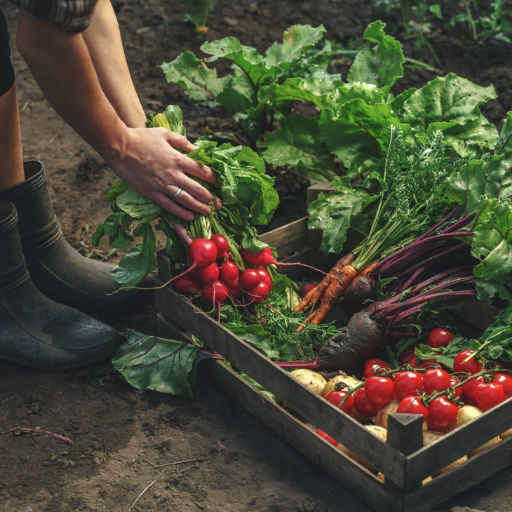
DIY Solutions: Creating Your Own Organic Fertilizer
Certainly, it is possible to do organic gardening without any synthetic products by some home made organic fertilizer. I have discovered that it is not difficult to make organic fertilizer by myself, which in turn makes the process less harmful for nature. It is possible to obtain vital plant nutrients from waste in our homes such as coffee grounds, vegetables and scraps of eggshells. In addition to that, making compost out of them enriches soil naturally. Another effective method is using compost or aged manure steeped in water to produce liquid fertilizers that are rich in plant nutrients. This “compost tea” can be used as a foliar spray or soil drench and provides plants with an instant supply of organic nutrients. By implementing these simple DIY methods, I will always keep my sustainable and thriving organic garden without relying on artificial products.
Long-Term Benefits of Committing to Organic Products
Committing oneself to use natural products has numerous long-term benefits both personally satisfying and ecologically sound. For one thing, I noticed while using natural products that they help maintain the health of soil by preserving its original structure and biodiversity. When the soil is healthy enough then it becomes a good medium for healthy growth of crops hence reducing need for chemicals when growing crops. Besides this, application of organic farming practices promotes beneficial insects while reducing toxic pesticide runoff within local ecosystems. Ultimately this culminates into more sustainable and balanced ecosystems over time; however, at times this may take decades or even longer periods than that.. Although the initial price can be higher than for conventional alternatives, their reduction leads to savings through lesser need for synthetic inputs associated with these costs through time. Additionally choosing organic also guards against potential exposure risks of family members associated with synthetic materials as well as contributes towards healthier lifestyles among individuals who opt for this path unlike others who prefer alternative ways thus avoiding synthetics. To sum up everything, the decision to use natural products supports a healthier garden that can be sustained for long and improves general health of both me and the environment.
Frequently Asked Questions (FAQs)
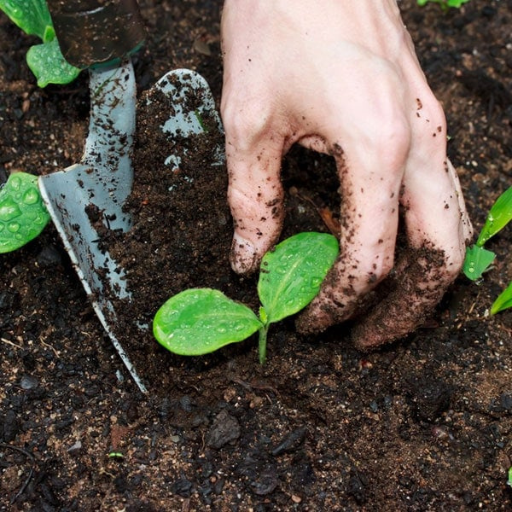
Q: Why should I use natural organic fertilizers on my garden?
A: To make sure that you supply enough nutrients to your plants and create healthy soil environment. In contrast with the synthetic ones, these fertilizers are sourced from substances like kelp, bat guano, or even worm casts which ensure slow and steady release of their contents for constant nourishment of your plants.
Q: What are the advantages of using general-purpose fertilizers in my garden?
A: General purpose fertilizers can be used on a variety of plants to provide balanced nutrition. All-purpose fertilizer contains necessary nutrients including nitrogen (N), phosphorus (P) and potassium (K). Therefore, you need an organic all purpose fertilizer for a lush green lawn.
Q: Can you describe what bat guano fertilizer is and its benefits?
A: Bat guano is made up of decomposed droppings from bats. It is versatile because it has very high levels of nitrogen phosphate potassium making it an excellent all-purposse fertiliser. The use of bat guano encourages strong root development, enhances soil structure and improves nutrient retention.
Q: How does seaweed fertilizer benefit my garden plants?
A: Liquid seaweed like sea-grower is derived from Kelp and Seaweed found in our oceans. This type of fertilizer usually contain micronutrients, hormones, and biostimulants that help in promoting root growth as well as the disease resistance while improving general plant health. It implies that it acts faster than other types since the nutrients can be easily taken by the plant.
Q: What is the role played by phosphate in plant nutrition?
A: Phosphate plays a key role in the formation of DNA, RNA and ATP (adenosine triphosphate), which are vital for energy transfer within plants. It also supports flower and fruiting production as well as overall plant vigor. Some organic sources include rock phosphate and bone meal.
Q: Are there any natural fertilizers that I can use on my lawn?
A: Yes, there exist natural fertilizers for lawns. Such products as organic all purpose fertilizers and liquid seaweed ensure that your grass is lush and green by providing the necessary nutrients. This way, they improve soil health, minimize chemical wash off into water bodies and are safe around pets and children.






